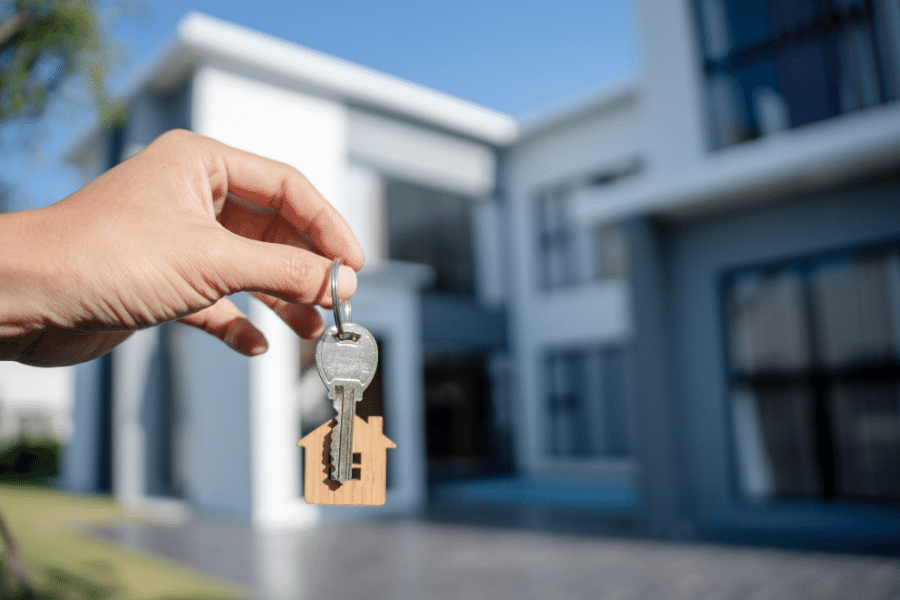How to Sell a Home During a Divorce

Selling a Home During a Divorce
Here is what you should know about selling your house during a divorce!
Divorce is not easy. It's an emotional and stressful time for everyone involved. Did you know that selling your home during divorce can save you money on capital gains tax as long as you sell while legally married?
You're eligible for an exclusion of up to $500,000 while legally married. Once you divorce, that exclusion drops to $250,000. You can read more about tax strategy below.
Just because you're going through a divorce does not mean you have to sell your house; even if you want to sell, you should seek expert advice to find out if it's a good time to sell; the market shifts fast, especially if you are selling with kids involved.
Are you aware of the divorce laws in your state? In my local market, here in Raleigh, NC, the divorce laws require you to be separated for one year and one day before a divorce can be granted. This means one person in the relationship must find a new place to live for a year. During this time, you'll have many questions regarding who pays the mortgage and maintenance on the house.
Most couples splitting apart will be forced to sell their home for financial, personal, or legal reasons. The house likely holds much of your equity and is often your greatest asset.
It's easy to understand why some people get divorced, and it's more common than most people may realize. This article will answer some of the most common questions about selling a home during divorce.
United States Divorce Statistics
Around 50% of marriages in the United States end in divorce. The number is high in many other developed nations as well.
Divorce Statistics by number of marriages:
-
40% of new marriages include a partner who is remarrying.
-
69% of divorces are initiated by women.
-
74% of third marriages end in divorce.
If you decide or are forced to sell your home during a divorce, you have to understand that you are going to be tested emotionally. Neither divorce nor the selling of your home is easy. The divorce and sale together make things even more challenging for you.

Chapters
1. How to Sell Your Home During a Divorce
One of the hardest parts of divorce is the sale of your home.
A home holds sentimental value, whether you are going through a divorce or not. Sometimes, it's better to rip the band-aid off and move on; sometimes, it's better to do your best to hold onto it. There are several reasons to consider, and we will go over them in this article.
Once you decide whether or not the reasons make sense to keep or sell your home, you should do your best to commit to that decision.
Selling a home during a divorce is one major difference from a typical sale since you have to figure out who will get what before selling. Whether it's the furniture, the electronics, or the money from the sale, the hardest part will be figuring out who walks away with what.
You will want to consult with an attorney. The attorney is the mediator who will help you divide up possessions and equity to be fair. Before you contact a Realtor, you will need an understanding of who will walk away with what after the sale.
A Realtor can help you determine how much your home is worth and at what price you will see your greatest return on investment. Having a general understanding of the value of your home should give you a ballpark estimate of the equity you'll walk away with.
A divorce can impact the sale of a home in several ways, which makes it important for you to understand these ways ahead of time

2. Can You Sell a House to a Spouse During a Divorce?
Negotiating a spouse buyout on your home is not as complicated as it sounds. Down the line is where it gets tricky. The home will likely appreciate or depreciate, and this is where it gets tricky. Depending on which way the home goes, one party will be upset that the other one made more money. Each party bears risk, and you should understand this upfront, it can go either way.
Often, the custodial parent will be the one to continue living in the house, which can be a great way to provide stability for the kids when there is so much change.
Often times the buyout will be included in the separation agreement in which one party will sell the house to the other. The buyout of the house is completed as a part of the divorce settlement.
This can be accomplished by refinancing the house and taking out a new mortgage loan or giving up other assets that are equivalent to the price of the selling spouse's share. If there are other marital investments or retirement accounts, these can be used to settle the interest the selling party has in the home.
If neither party wants to sell the house, there are ways in which you can rent the house to your spouse.
3. How to Keep Your House When Separating?
One spouse can keep the house while separating in several ways. A spouse buyout is the likeliest of scenarios. However, there are other ways in which you can keep your house.
One way to keep the house is to 'rent' it from your spouse. Basically, you will pay their portion of the mortgage, and they will be entitled to an interest in the house. It's likelier a better scenario that you buy your spouse out. However, a divorce is expensive, so you may have to work out a payment plan or sell off other assets.
You can rent it out to another family and continue paying down the home's mortgage. You will want to make sure you're prepared to be a landlord, and any profits or income on the home will likely be split both ways. Using a property management company that can divide everything equally between spouses may make more sense.
Keep in mind being a landlord is not easy. It's even more difficult when you own a property with a former spouse.

4. Can You Rent a House to a Spouse During Divorce?
Renting your house to a spouse is one way to keep it. Everything needs to be put in writing because there is a lot of uncertainty as to who pays what, do you split the costs for expenses (new roof, new HVAC, etc.?), this all needs to be determined in writing before an agreement is made.
Keeping the house is likely why you are exploring renting the house from a spouse. While it's not recommended, it can be done. Before you decide to rent or rent it from your spouse, you must be honest with yourself. Is this something you think can work?
If you cannot afford to buy your spouse out, renting it out from them is a great option in which you are theoretically setting up a payment plan that allows you to hold onto the house until you can afford to buy the 'interest' your spouse has in the house.

5. Should I Sell My Home Before or After a Divorce?
Before you divorce is likely the best scenario for selling your home during a divorce, it's important to meet with a local Realtor an attorney, and let them know every detail of your situation so they can play out the results with you. You want to walk away from the sale of your home with as much money as possible, which means you will want to share everything with your team. They are here to help you.
Selling a home before a divorce makes sense because of some tax breaks that being a legally married couple gives you. For instance, you are eligible for a $500,000 exclusion in capital gains taxes if you've owned the home and lived there for at least two years. Your tax strategy will play a big part in whether or not you decide to sell your home before or after divorce.
6. What Are the Taxes When Selling a House During a Divorce?
Capital Gains Taxes are worth paying attention to when selling your house during a divorce. The reason is that as a legally married couple, you are eligible for a $500,000 tax exclusion, while you're only eligible for a $250,000 tax exclusion individually.
When selling your home, your tax strategy can have serious financial implications, upwards of tens of thousands of dollars in some cases, so you must educate yourself with good information on the topic.
You will want to familiarize yourself with how capital gains taxes work.
Capital gains tax is a tax on the profits from property sales when the gains exceed a certain amount.
You will be paying capital gains on any profit you make unless you have lived in the home for at least two of the five years before the sale. The home must be your "principal residence." Additionally, if separated, you will only be eligible for up to a $250,000 gain from your taxable income. You are eligible for up to $500,000 if you are legally married.
Remember, selling your house while you are still legally married BEFORE the divorce is official could save you a lot of money. If you have any questions please feel free to email us with your scenario.
7. Who pays the Mortgage During Divorce?
The best piece of advice I can give is to be wary of the amount of risk you take in this process.
Put everything in writing, and do not allow anything to be a verbal agreement. It could come back to haunt you. Nothing surprises me anymore when it comes to people, especially during an emotional time like divorce.
You may see a side of your spouse that you've never seen before; it's important not to change who you are and what you stand for during this period. Emotions drive actions, and you don't want to react logically to anything you haven't thought through.
During a divorce, someone may decide to keep the house; in this case, the questions revolve around the mortgage. If you are both on the title and mortgage, you have to be careful, especially if you're the spouse walking away from the house. You're subjecting yourself to some risk here.
What happens if your spouse doesn't make payments? How will that impact you since your name is tied to the house?
Paying your spouse could be a bit riskier than paying the mortgage; your spouse may take that money and use it for something completely different than paying the mortgage.
Whatever you decide to work out with your spouse, you need to make sure it's in writing and has been reviewed by a divorce lawyer.

FAQs
Is divorce considered a financial hardship?
Divorce can create additional money problems and is considered one of the leading financial hardships.
Who loses more financially in a divorce?
Women tend to suffer more financially than men do during a divorce and can expect a decline in her standard of living following a divorce.

Ryan Fitzgerald
Hi there! Nice to 'meet' you and thanks for visiting our Raleigh Real Estate Blog! My name is Ryan Fitzgerald, and I'm a REALTOR® in Raleigh-Durham, NC, the owner of Raleigh Realty. I work alongside some of the best Realtors in Raleigh. You can find more of my real estate content on Forbes, Wall Street Journal, U.S. News and more. Realtor Magazine named me a top 30 under 30 Realtor in the country (it was a long time ago haha). Any way, that's enough about me. I'd love to learn more about you if you'd like to connect with me on Facebook and Instagram or connect with our team at Raleigh Realty. Looking forward to connecting!
Related Blogs





